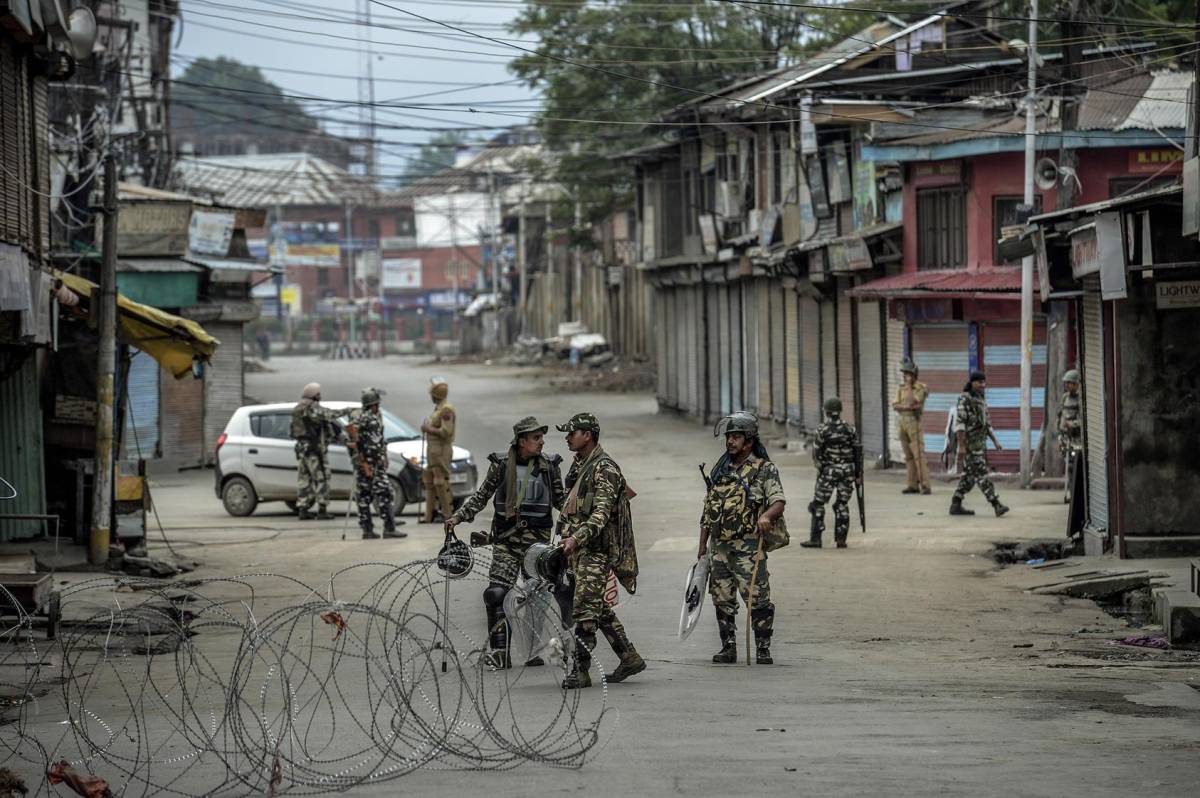
by Afia Atiq Malik
Kashmir dispute continues to be a source of tension and hostility between the two South Asian nuclear powers, India and Pakistan even for last 75 years. Since gaining its independence, Pakistan’s foreign policy has been heavily impacted by the Kashmir dispute, which continues to be its key priority. The fact that it threatens the region’s strategic stability and deterrence capabilities highlights its significance as a concern for international community. The conflict has been the subject of multiple armed conflicts.
The dynamics of the Kashmir dispute have been transformed after the bifurcation of the erstwhile state of J&K and end of statehood. Throughout the latest onslaught of human rights violations, Pakistan’s support for its Kashmiri brothers and sisters remains unwavering.
The process was led by diplomats, who focused their efforts on bringing attention to Indian crimes and their Nazi mentality across global capitals and multilateral organizations. The message is loud and clear that Indian attempts to undermine the rights of Kashmiris are based on fascist ideological strands i.e. Saffronism and Hindutva.
Pakistan has always supported the people of Kashmir. In order to put pressure on India to comply with the UNSC resolutions on Kashmir, it is now time for world leaders, international media, academia, and human rights organizations to join in and demand fundamental human rights for Kashmiris. OIC and the Islamic world especially have moral responsibility to ensure peaceful resolution of Kashmir demand in accordance with UNSC resolutions and will of Kashmiri people.
Pakistan is conducting international seminars, conferences, public influence exercises, art exhibitions, and academic debates in an effort to educate international community on grave human rights abuses by Indian government and occupational forces in IIOJK.
Pakistan’s diplomacy has remained proactive in addressing Kashmir conflict. Pakistan’s objective has sought to respect the will of Kashmiris. Pakistan’s stated Kashmir policy objective is to ensure Kashmiri’s right to self-determination as accorded by UN charter.
The implementation of UN Security Council’s resolution is an important element in resolution of Kashmir conflict. Any solution has to satisfy the will and aspirations of the Kashmiri people. This is crucial, for moving the process forward. Pakistan has reaffirmed its steadfast intention to support Kashmiris until they are granted their right to self-determination, as guaranteed by the international law.
A fundamental value of democratic societies that is widely acknowledged, the right to self-determination accords freedom to choose the freedom of association and right to define one’s identity. But the so-called world largest democracy, India, shamelessly denies IIOJK this privilege.
India has adopted a constitutional cover to its illegal occupation in IIOJK. The Indian constitution prohibits conducting a plebiscite in Kashmir. When looking at the provisions of Article 3 of the Indian Constitution, which only gives the Indian Parliament the authority to form new states and change the locations, borders, and names of existing ones, this viewpoint may be refuted. The final decision of Jammu & Kashmir is not addressed in the Indian constitution.
The Vienna Convention on the Law of Treaties requires that the India adhere to the international law. A party cannot use the provisions of its domestic law as an excuse for breaching a treaty, according to Article 27 of this convention. This article demonstrates that a state cannot break an international agreement on the grounds that it violates its domestic laws. The claim made by India that Pakistan was somehow responsible for starting freedom struggle is absolutely false. Objective commentators and researchers in academia can attest to the independence of the agitation in Kashmir.
In conformity with UN Security Council resolutions, Pakistan supports the right of the people of Jammu and Kashmir to self-determination. These resolutions from 1948 and 1949 call for the convening of a free and impartial referendum so that the people of Jammu and Kashmir can decide the state’s destiny. The Kashmiri people have endured a 75-year unlawful Indian occupation, but they remain steadfast in their quest for the right to self-determination, and Pakistan has established itself as the voice of Kashmiris in all international fora.
The international community, notably the West, has to apply pressure on the Indian government to remove its unlawful forces from Indian-occupied Jammu & Kashmir and provide the people their rights. This pressure must transcend economic and geopolitical considerations
